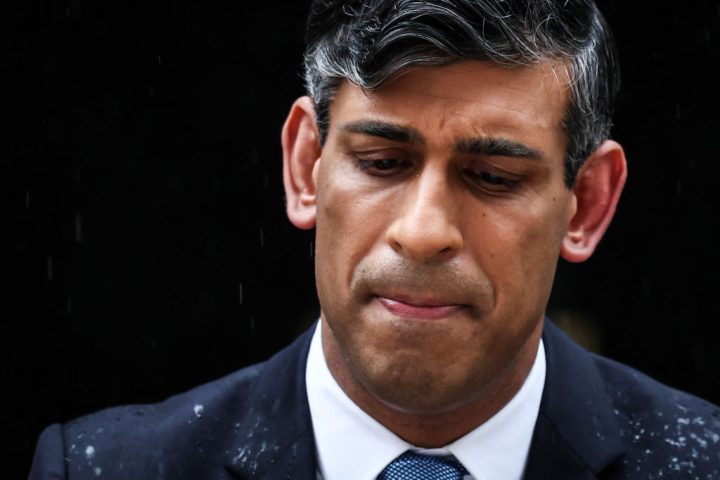Would waiting another few months to call a general election have improved the Conservatives’ prospects? Rishi Sunak didn’t touch upon this in his speech today, announcing a general election for 4 July, but it seems likely that their broad assessment was no.
One of the big reasons for waiting until the autumn was the possibility of another fiscal statement. Jeremy Hunt’s March Budget left plenty to be desired by many Tory MPs, who wanted income tax cuts and changes to inheritance tax. The hope was that the public finances would improve in the spring and summer, offering up another chance to craft a tax-cutting narrative – and to give more time for the employee National Insurance tax cuts already implemented to be felt by the public.
But recent updates from the Office for National Statistics have brought the prospect of more tax cuts into doubt. The latest set of data dropped this morning, quietly. The news was overshadowed by inflation data which slowed (nearly) back to target in April. But the state of the public finances was nothing like a good news story, as borrowing in April stood at £20.5 billion – £1.5 billion more than in April last year – and debt servicing payments hit their highest level in 10 months.
For months the government has been borrowing more than has often been expected, with estimated borrowing for the financial year now ‘£7.3 billion more than the £114.1 billion forecast by the OBR,’ according to the Office for National Statistics. Having to spend so much money to service what has already been borrowed and spent has made it increasingly difficult for the Treasury to remain optimistic that the Office for Budget Responsibility would allow for another substantial tax cut to be delivered in the autumn.
But a pre-election fiscal event isn’t the only thing off the cards now. The chances of an early summer interest rate cut just went from possible to non-existent. While market expectation was already waning for a June rate cut, the Bank of England’s Monetary Policy Committee is now going to feel even more bound to the norm (i.e. holding rates). Like the Federal Reserve in the United States, which is already under the microscope despite the US election being six months away, central banks want to avoid any accusations of playing politics so close to an election.
‘This morning it was confirmed that inflation is back to normal,’ Sunak said in his speech on the steps of Downing Street. ‘This means that the pressure on prices will ease and mortgage rates will come down.’ But those mortgage rates are likely to start falling further once rate cuts are nailed on. That process has just been delayed by announcing a summer election. When they do finally come, it is no longer any guarantee that it will be the Prime Minister’s party taking credit for them.
Catch up on the latest Coffee House Shots with Katy Balls and James Heale:
This article is free to read
To unlock more articles, subscribe to get 3 months of unlimited access for just $5







Comments
Join the debate for just £1 a month
Be part of the conversation with other Spectator readers by getting your first three months for £3.
UNLOCK ACCESS Just £1 a monthAlready a subscriber? Log in